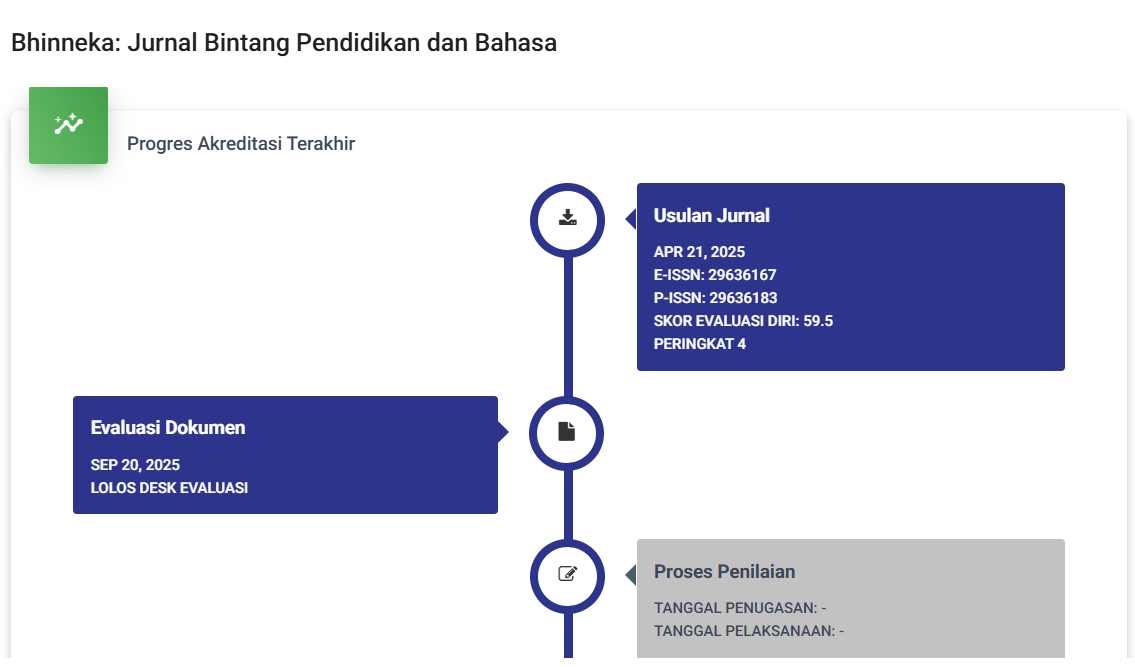Economic Diversification In Iraq: A Comprehensive Review
DOI:
https://doi.org/10.59024/bhinneka.v2i3.867Keywords:
Economic Diversification, Oil Dependence, Government Initiatives, IraqAbstract
Economic diversification is crucial for Iraq to overcome the limitations imposed by its heavy reliance on oil. This study explores Iraq's economic history, current structure, and the urgent challenges it faces, emphasizing the need for structural transformation. It examines the vulnerabilities caused by fluctuating global oil prices, geopolitical instability, and internal demographic pressures for the period of 2004 to 2022. By analyzing government policies, sectoral developments, and international collaborations, this research highlights the efforts and obstacles in achieving economic diversification. The findings indicate that while Iraq has made strides toward diversifying its economy, it still faces significant challenges such as bureaucratic inefficiencies, political instability, and security concerns. International collaborations and foreign direct investment (FDI) emerge as crucial components, providing the financial support and technological expertise needed for economic transformation. Lastly, economic diversification is more than just an economic strategy for Iraq; it is a comprehensive approach to achieving long-term stability and growth. A diversified economy can help Iraq build resilience against external shocks, promote inclusive growth, and secure a sustainable and prosperous future. The imperative for economic diversification is clear: to create a stable, balanced, and resilient economy that can withstand global market fluctuations and geopolitical dynamics, ultimately improving the well-being of its population
References
The Oxford Handbook of Iraq Politics and Society. Oxford University Press.
Al Naimi, S. M. (2022). Economic diversification trends in the Gulf: The case of Saudi Arabia. Circular Economy and Sustainability, 1-10.
Albassam, B. (2015). Economic diversification in Saudi Arabia: Myth or reality? Resources Policy, 44, 112–117.
Al-Jundi, S. (2012). Economic diversification in the United Arab Emirates. Economic Horizons, 33(122).
Al-Saidi, M., Das, P., & Saadaoui, I. (2021). Circular economy in basic supply: Framing the approach for the water and food sectors of the Gulf Cooperation Council countries. Sustainable Production and Consumption, 27, 1273–1285. https://doi.org/10.1016/j.spc.2021.03.004
Economist Intelligence Unit. (2019). Iraq country report. Retrieved from https://www.eiu.com/n/countries/iraq
Freedman, L. (2011). The Gulf War of 1990-1991. In M. Marr & E. Owen (Eds.), The Modern History of Iraq. Westview Press.
Gomez-Mejia, L. R., Makri, M., & Kintana, M. L. (2010). Diversification decisions in family-controlled firms. Journal of Management Studies, 47(2), 223-252. https://doi.org/10.1111/j.1467-6486.2009.00889
Karshenas, M. (1990). Oil, state, and industrialization in Iran. Cambridge University Press.
Kubursi, A. A. (1984). Economic diversification in the Arab world: Past experience and future strategies. Economic Research Forum for the Arab Countries, Iran, and Turkey (ERF).
Lange, D., Boivie, S., & Henderson, A. D. (2009). The parenting paradox: How multibusiness diversifiers endorse disruptive technologies while their corporate children struggle. Academy of Management Journal, 52(1), 179–198.
Mehrara, M. (2014). The relationship between non-oil trade and GDP in petroleum exporting countries. International Letters of Social and Humanistic Sciences, 12, 63–70.
Morakabati, Y., Beavis, J., & Fletcher, J. (2014). Planning for a Qatar without oil: Tourism and economic diversification, a battle of perceptions. Tourism Planning & Development, 11(4), 415-434.
Ozili, P. (2021). Circular economy, banks, and other financial institutions: What’s in it for them? Circular Economy and Sustainability. https://doi.org/10.1007/s43615-021-00043-y
Saeeda, M. A., Mihob, A. A., & Alic, B. K. Investigating short and long-term relationship between foreign direct investment and economic performance: New evidence from Brazil. International Journal of Innovation, Creativity and Change, 13, 201-219.
Sassoon, J. (2012). Sovereignty and the state in Iraq: The making of modern Iraq. Routledge.
Wang, H. C., & Barney, J. B. (2006). Employee incentives to make firm specific investments: Implications for resource‐based theories of corporate diversification. Academy of Management Review, 31, 466–476.
World Bank. (2020). Iraq economic monitor: Navigating a perfect storm. Retrieved from https://www.worldbank.org/en/country/iraq/publication/iraq-economic-monitor-navigating-a-perfect-storm
Downloads
Published
How to Cite
Issue
Section
License
Copyright (c) 2024 Bhinneka: Jurnal Bintang Pendidikan dan Bahasa

This work is licensed under a Creative Commons Attribution-ShareAlike 4.0 International License.








